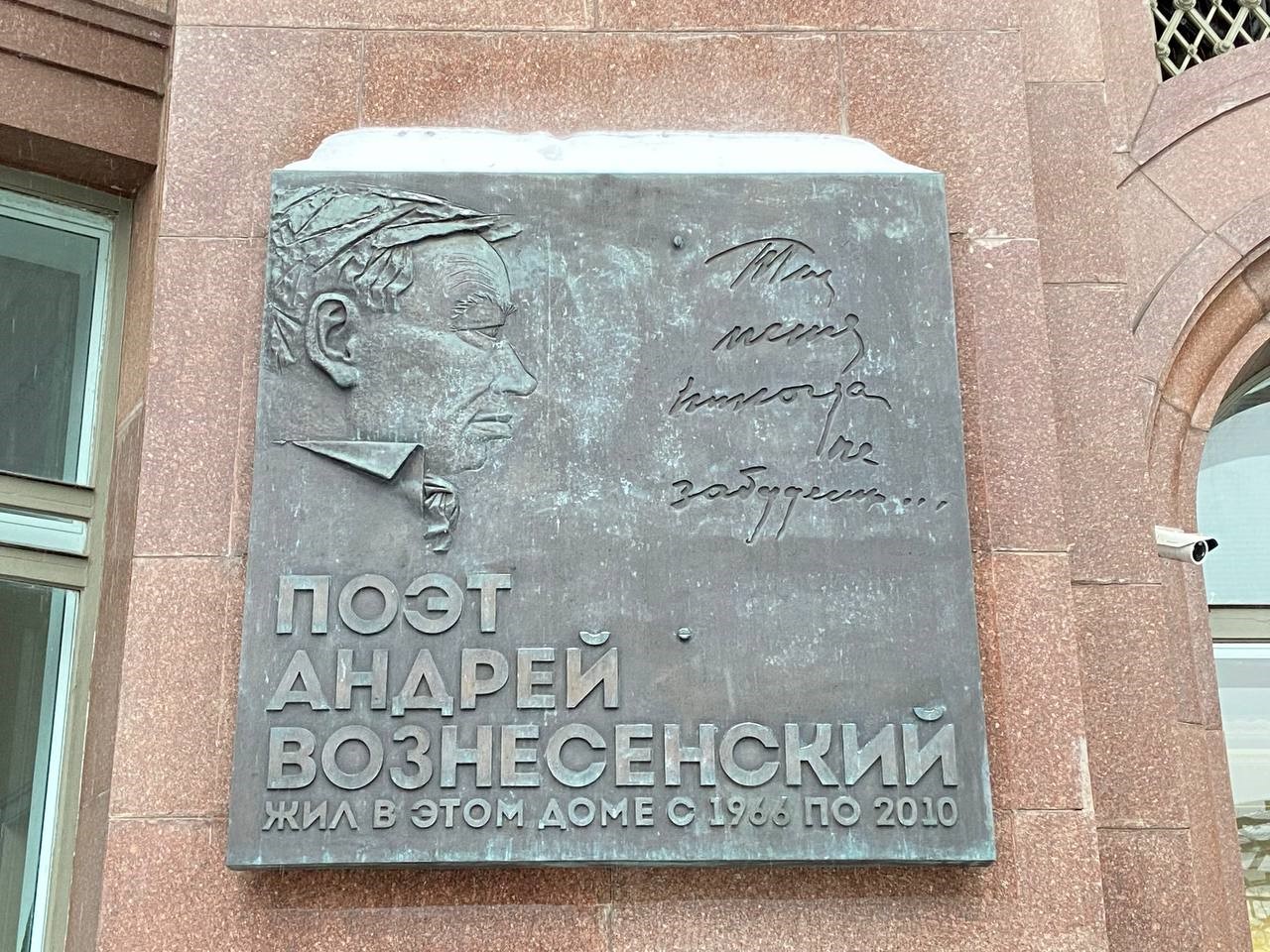Andrey Andreevich
Voznesensky
1933-2010

Andrey Voznesensky was a Soviet and Russian poet, publicist, artist and architect. He was born on May 12, 1933 in Moscow. His father, Andrey Nikolaevich Voznesensky, was a prominent hydrological engineer and Doctor of Technical Sciences, while his mother, Antonina Sergeevna Pastushihina, was fond of poetry and instilled a love for I. Severyanin’s, M.A. Kuzmin’s, A.A. Akhmatova’s and V.K. Zvyagintsev’s works. In his early years, Andrey lived in Moscow with his parents and sister or with his grandmother in Kirzhach, the Vladimir region, but one of the most memorable events of his childhood was the start of the war and evacuation to Kurgan in 1941. The family returned to Moscow in 1943. Andrey studied at Moscow Secondary School No. 554 and finished it with a silver medal. He excelled in all subjects, especially under the influence of his English teacher M.G. Markaryants, who not only taught Voznesensky how to speak English fluently, but also inspired him with a love for English poetry. Voznesensky then continued to memorize poems by Edgar Poe, John Keats, and Percy Shelley that he had learned in school. Among his classmates, there was the famous film director Andrei Tarkovsky with whom he maintained a friendly relationship. In 1951, at the urging of his parents, Voznesensky entered Moscow Architectural Institute where he gained unique experience in spatial design, which he would later apply in his literary works. After graduation, he was assigned to Riga but soon returned to Moscow, deciding to pursue a career in literature. Voznesensky’s interest in poetry began at the age of 14, and his first poems were submitted to Boris Pasternak who not only read them but also recognized his talent, calling him an aspiring poet. This encounter became a pivotal moment in Voznesensky’s life, leading to a friendship with Pasternak that greatly influenced him. He later said, “He gave me a voice.” Voznesensky’s literary debut took place in 1958, and his bold and innovative style immediately caught the attention. The poem “Masters”, published in the Literary Gazette in January 1959, and the collection “Parable”, published in 1960, helped to establish Voznesensky as the main innovator of poetic language, or “formalism.” Along with Robert Rozhdestvensky, Yevgeny Yevtushenko, Bella Akhmadulina, and Bulat Okudzhava, Voznesensky became very popular among intellectuals. His relaxed style, erudition, and rich use of metaphors made him a favourite at poetry readings at the Polytechnic Museum. Voznesensky’s expressive style, similar to that of Vladimir Mayakovsky and Velimir Khlebnikov, angered literary authorities. Khrushchev himself shouted at him from the stage: “Leave, Mr. Voznesensky’s response to criticism was not without its challenges. Despite the negative attention he received, the poet did not face severe repercussions, although some of his performances were canceled during times of political unrest. Nonetheless, he continued to travel and engage with prominent figures such as Arthur Miller, Marilyn Monroe, Louis Aragon, Jean-Paul Sartre, Allen Ginsberg, and Andre Breton. In 1964, his poem “Anti-worlds” gained him new recognition, and it was staged at the Taganka Theatre. During the 1970s, when the popularity of poets began to wane, Voznesensky remained productive, creating significant works like “Shadow of Sound”, “Let Out the Bird”, and “The Stained-Glass Master”. He was even nominated for the Nobel Prize and his works were regularly published abroad. Despite censorship, he continued his work, participating in the Metropol Almanac in 1979. The early 1980s saw a resurgence in his popularity, leading to a second wave of success. According to his libretto, the rock opera “Juno and Avos” was staged and has become popular to this day. In 1982, the song “Million Scarlet Roses”, based on his poems, became an all-Union hit. In the 1990s, Voznesensky became an honourary member of many societies and academies and often appeared on radio and television. Despite a serious illness in the 2000s, the poet continued to create. In his recent works, such as the collections “Return to the flowers!”, “Verses”, and “Darkness”, Voznesensky was looking for the ideal verbal form for the new century.
Address: Moscow, Kotelnicheskaya nab., 1/15, bldg. B

